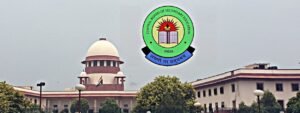Section 498A IPC – Prosecution Of Husband’s Relatives Based On General & Omnibus Allegations By Wife Is Abuse Of Process
Case: Kahkashan Kausar @ Sonam Vs State Of Bihar
Coram: Justices S. Abdul Nazeer and Krishna Murari
Case No.: CrA 195 OF 2022
Court Observation: “Incorporation of section 498A of IPC was aimed at preventing cruelty committed upon a woman by her husband and her in-laws, by facilitating rapid state intervention. However, it is equally true, that in recent times, matrimonial litigation in the country has also increased significantly and there is a greater disaffection and friction surrounding the institution of marriage, now, more than ever. This has resulted in an increased tendency to employ provisions such as 498A IPC as instruments to settle personal scores against the husband and his relatives.”
“The above-mentioned decisions clearly demonstrate that this court has at numerous instances expressed concern over the misuse of section 498A IPC and the increased tendency of implicating relatives of the husband in matrimonial disputes, without analysing the long term ramifications of a trial on the complainant as well as the accused. It is further manifest from the said judgments that false implication by way of general omnibus allegations made in the course of matrimonial dispute, if left unchecked would result in misuse of the process of law. Therefore, this court by way of its judgments has warned the courts from proceeding against the relatives and in-laws of the husband when no prima facie case is made out against them.”
“This simply leads to a situation wherein one fails to ascertain the role played by each accused in furtherance of the offence. The allegations are therefore general and omnibus and can at best be said to have been made out on account of small skirmishes. Insofar as husband is concerned, since he has not appealed against the order of the High court, we have not examined the veracity of allegations made against him. However, as far as the Appellants are concerned, the allegations made against them being general and omnibus, do not warrant prosecution.”
Therefore, upon consideration of the relevant circumstances and in the absence of any specific role attributed to the accused appellants, it would be unjust if the Appellants are forced to go through the tribulations of a trial, i.e., general and omnibus allegations cannot manifest in a situation where the relatives of the complainant’s husband are forced to undergo trial. It has been highlighted by this court in varied instances, that a criminal trial leading to an eventual acquittal also inflicts severe scars upon the accused, and such an exercise must therefore be discouraged.
Previous Posts
Post Office/Bank Can Be Held Liable For Frauds Or Wrongs Committed by its Employees: Supreme Court
Should Disobedience Of Injunction Be ‘Wilful’ To Invoke Order 39 Rule 2A CPC? Supreme Court Doubts Its Earlier Judgment Download Judgement




